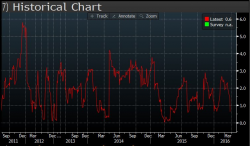Caught On Tape: U.S. Plane Allegedly Drops Weapons for ISIS Militants in Iraq

One day after reprorting that British military information services Janes, had found confirmation of several shipments amounting to 3,000 tons of weapons and ammo to Al-Qaeda linked Syrian rebels in a transport solicitation on the U.S. government website FedBizOps.gov, today Veterans Today goes deeper into the rabbit hole and reports that several Iraqi policemen claim to have seen US aircraft dropping weapons and munitions for ISIS terrorists in a region west of the Anbar province on Friday.


